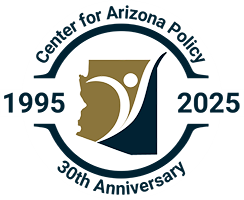Americans can be grateful this morning for a U.S. Supreme Court acting like our founders intended. In our constitutional form of governance, the Court is to interpret the law, not make the law. Through several key rulings, the Court has cleaned up years of confusion on the First Amendment’s Free Speech, Free Exercise, and Establishment Clauses as well as cleaned up abortion jurisprudence by declaring abortion rights are not in the Constitution.
Americans are still allowed to pray – even on the 50-yard line. This morning, the U.S. Supreme Court ruled in favor of Coach Joseph Kennedy. The ruling upheld First Amendment free speech and free exercise rights. Further, the Court clearly stated the prayers did not offend the First Amendment’s Establishment Clause.
The Court’s 6-3 ruling in Kennedy v. Bremberton School District upholds Coach Kennedy’s right to publicly express his faith with prayer, even if it makes others uncomfortable. Americans have the right to freely exercise one’s religion outside the four walls of a church or other house of worship. Public prayer is not government sanctioned religion.
In the majority opinion, Justice Gorsuch wrote that
“ The Constitution and the best of our traditions counsel mutual respect and tolerance, not censorship and suppression, for religious and nonreligious views alike.”
and
“Respect for religious expressions is indispensable to life in a free and diverse Republic —whether those expressions take place in a sanctuary or on a field, and whether they manifest through the spoken word or a bowed head.”
The former high school football coach’s silent prayer of gratitude after each game constitutes an exercise of his First Amendment rights, not a violation of them. The Exercise Clause does not take a back seat to the Establishment Clause, nor are the two incompatible. Americans, even those employed by public entities, have a fundamental right to express their religious beliefs publicly.
The Bremberton School District in Washington State told Coach Kennedy to stop his midfield prayers after someone complained. Kennedy continued to pray after football games and the school fired him.
During oral arguments, Justice Clarence Thomas asked why praying on the field would not be allowed if kneeling during the national anthem to highlight racism, climate change, or the war in Ukraine is acceptable, “How is that not religious discrimination?” asked Justice Thomas. Indeed, a majority of justices agreed it was and thankfully set a precedent with today’s ruling.
Center for Arizona Policy participated in amicus briefs in support of Coach Kennedy. Read here.

